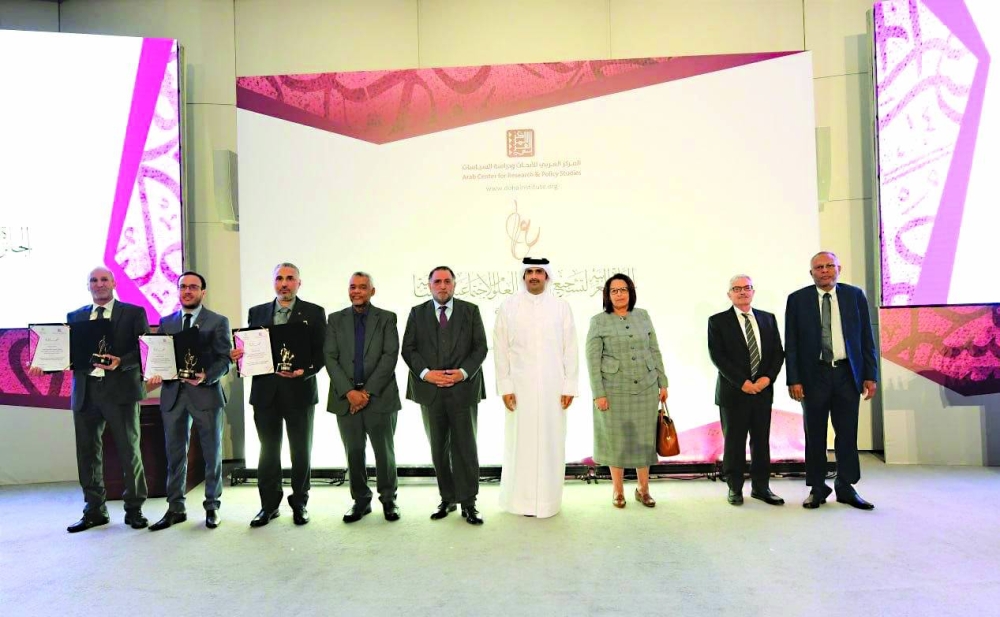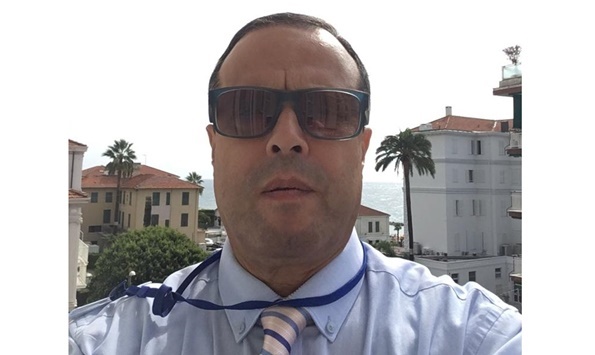At the end of the three-day conference on Social and Human Sciences, held by the Arab Center for Research and Policy Studies in Doha from 11-13 March 2023, Dr Abdel-Wahhab al-Afandi, Chairman of the “Arab Award for Encouraging Research in the Social and Human Sciences” Committee, presented the 2021/ 2023 session results and announced the committee’s decision to award the Arab Prize to three of the twenty research papers, ten of which were shortlisted.
The award was distributed to the winners by the Qatari Minister of Culture, HE Sheikh Abdulrahman bin Hamad al-Thani, and Dr Azmi Bishara, Director General of the Arab Center for Research and Policy Studies.
Dr Ahmed Abu El-Ela won the Arab Prize for his research “The Political Culture of Nubian Youth in Egypt: The Nubian Movement Towards the Issue of Return as a Model.” The Scientific Reading Committee for the Prize considered it as one of the best research work received by the Committee of the Conference of Social Sciences and Humanities. This research goes directly to the core of the subject of political culture, thanks to its harmonious structure, its objectives, clear problematics, consistency of method and topic, valuable study results, and the importance of the references on which it was based, as well as writing the text in sound language.
The Arab Prize for this session was also won by Dr Saeed al -Haji for his research "Consensus in the Culture of the Moroccan Political Elite: On the Relationship between the Determinants of Consensus and Democratic Transformation in Morocco." The Scientific Reading Committee of the Award confirmed its consistence with the objectives of the Center stipulated in Article 1 of the Statute of the Award. It enters into the core theme of the conference, and contributes to introducing the Arab reader specifically to the Moroccan experience, and it confirms the results previously reached by Moroccan researchers in interpreting the existing political structure in Morocco.
The third winner of the Arab Award was Dr Mohamad Naimi for his research " ' Political Culture ' and Protest Collective Action in the Context of the Arab Uprisings (2011-2019)." The Scientific Reading Committee of the award confirmed that it is characterized by a great intellectual effort to formulate the problem at the theoretical level. A serious attempt to understand a complex and changing reality that concerns some Arab countries.
The Arab Award for Social Sciences and Humanities is a competitive award launched by the Arab Center since 2011, in order to encourage Arab researchers to conduct creative scientific research on issues and problems that deal with the process of development of Arab societies in the field of social and human sciences. It is held every two years to allow sufficient time for researchers to complete their research. The Arab Award for the Encouragement of Research in the Social and Human Sciences awards a maximum of three papers submitted to the Social Sciences and Humanities Conference. The award consists of three components: an award certificate, an encouraging financial reward of ten thousand dollars, and a research grant of forty thousand dollars, to support the researcher in developing the study. More than 250 papers competed for the Arab Award in its nine sessions, and more than 50 researchers from various Arab countries won it, namely Egypt, Jordan, Mauritania, Morocco, Tunisia, Sudan, Iraq, Bahrain, Kuwait, Palestine, Syria and Algeria.
At the conclusion of the Arab Award ceremony, the Director General of the Arab Center, Dr Azmi Bishara, spoke about the role of the Center in encouraging research in the social and human sciences, whether through the Arab Award or other programs of the Center. Then he introduced the theme for the tenth session for the Social and Human Sciences Conference and for the Arab Award for Encouraging Research in the Social and Human Sciences, which is “Social Media: Dialectic of Freedom of Expression, Censorship and Regulation.” Calling on male and female researchers to contribute to this session, for which the invitation to write for it and its background paper will be announced soon, on the center’s website Arabic and its social media.


